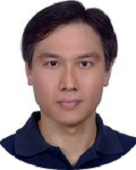
Track 11. Artificial Intelligence and Smart Learning Environments (AISLE)
Track Program Chairs
National Yunlin University of Science and Technology, Taiwan
[Chair Coordinator]
Vale do Rio dos Sinos University (UNISINOS),
Brazil
Hangzhou Normal University, China
National Central University, Taiwan
Track description and topics of interest
Broadly defined, Artificial Intelligence and Smart Learning Environments represent a new wave of educational systems, involving an effective and efficient interplay of pedagogy, technology, and their fusion towards the betterment of learning processes. Artificial Intelligence has the potential to educate, train, and augment human productivity, making them better at their tasks and activities. Artificial Intelligence can also make a better quality of an individual’s work, resulting in better learning and teaching.
A learning environment can be considered smart when the learner is supported by adaptive and innovative technologies from childhood through formal education and continued during work and adult life where non-formal and informal learning approaches become primary means for learning. Smart learning environments are neither pure technology-based systems nor a particular pedagogical approach. They encompass various contexts in which students (and perhaps teachers) move from one context to another. So, they are perhaps an overarching concept for future academia. This perspective has the potential to overcome some of the traditions of institution-based instruction towards lifelong learning.
AISLE@ICALT2021 will explore various dimensions of applying artificial intelligence and the emerging smart learning environments, such as what makes a learning environment smart, challenges in the design and implementation of such environments in multiple and heterogeneous contexts, pedagogical and technological underpinnings, and the validation issues. Various components of this interplay include but are not limited to:
- Pedagogy/didactics: instructional design, learning paradigms, teaching paradigms, environmental factors, assessment paradigms, social factors, policy
- Emerging technology: innovative uses of mature technologies, interactions, adoption, usability, standards, and emerging/new technological paradigms (open educational resources, learning analytics, cloud computing, smart classrooms, etc.)
- Fusion of pedagogy/didactics and technology: transformation of curriculum, transformation of teaching behaviour, transformation of learning, transformation of administration, transformation of schooling, best practices of infusion, piloting of new ideas.
- AI governance and policy for smart learning: AI governance, AI risk management, AI accountability, AI self-surveillance, biases in AI Algorithms, use and misuse of AI, AI on societal impact.
- AI technology & practice for smart learning: Explainable AI, interpretable ML, flexibility and contextual understanding by humans, explanation and comprehensible by humans, intelligent agent (assistants), automated conversational robot (Chabot), AI-enabled personalization.
Track Program Committee
| Nian-Shing CHEN, National Yunlin University of Science and Technology, Taiwan |
| Patricia A. JAQUES, University of Vale do Rio dos Sinos, Brazil |
| Junfeng YANG, Hangzhou Normal University, China |
| Stephen J.H. YANG, National Central University, Taiwan |
| Jorge Luis BACCA ACOSTA, University of Girona, Spain |
| Farshad BADIE, Aalborg University, Denmark |
| Ryan BAKER, University of Pennsylvania, USA |
| Débora BARBOSA, Feevale University, Brazil |
| Jorge BARBOSA, University of Vale do Rio dos Sinos, Brazil |
| Philippe BLACHE, Centre National de la Recherche Scientifique, France |
| Irene Y.L. CHEN, National Changhua University of Education, Taiwan |
| Maria-Iuliana DASCALU, University Politehnica of Bucharest, Romania |
| Ruiqi DENG, Hangzhou Normal University, China |
| Diego DERMEVAL, Federal University of Alagoas, Brazil |
| Fabiano DORÇA, Federal University of Uberlandia, Brazil |
| Wenxiang FAN, Hangzhou Normal University, China |
| Brendan FLANAGAN, Kyoto University, Japan |
| Isabela GASPARINI, Santa Catarina State University, Brazil |
| Gheorghita GHINEA, Brunel University London, UK |
| Mohammad Nehal HASNINE, Hosei University, Japan |
| Yue HU, Hangzhou Normal University, China |
| Anna HUANG, National Central Univerity, Taiwan |
| Chester HUANG, National Kaohsiung University of Science and Technology, Taiwan |
| Hazra IMRAN, The University of British Columbia, Canada |
| Yen-Ting LIN, National Pingtung University, Taiwan |
| Tze-Chang LIU, National Chung Hsing University, Taiwan |
| Jia-Jiunn LO, Chung Hua University, Taiwan |
| Leonardo MARQUES, Federal University of Alagoas, Brazil |
| Eleandro MASCHIO, Federal University of Technology, Paraná, Brazil |
| Tatsunori MATSUI, Waseda University, Japan |
| Sean Wolfgand MATSUI SIQUEIRA, Federal University of the State of Rio de Janeiro, Brazil |
| Riichiro MIZOGUCHI, Japan Advanced Institute of Science and Technology, Japan |
| Roger NKAMBOU, University of Quebec, Canada |
| Bernardo Pereira NUNES, The Australian National University, Australia |
| Magalie OCHS, Aix-Marseille Université, France |
| Hiroaki OGATA, Kyoto University, Japan |
| Eliseo REATEGUI, Federal University of Rio Grande do Sul, Brazil |
| Helena REIS, Federal University of Parana, Brazil |
| Rachel REIS, Federal University of Viçosa, Brazil |
| Kaoru SUMI, Future University Hakodate, Japan |
| Shu-Ming WANG, Chinese Culture University, Taiwan |
| Leandro Krug WIVES, Federal University of Rio Grande do Sul, Brazil |
| Jiun-Yu WU, National Yang Ming Chiao Tung University, Taiwan |
| Guangtao XU, Hangzhou Normal University, China |
| Tosh YAMAMOTO, Kansai University, Japan |
| Albert YANG, Kyoto University, Japan |
| Christopher YANG, Kyoto University, Japan |
| Chengjiu YIN, Kobe University, Japan |
| Xiaokun ZHANG, Athabasca University, Canada |




